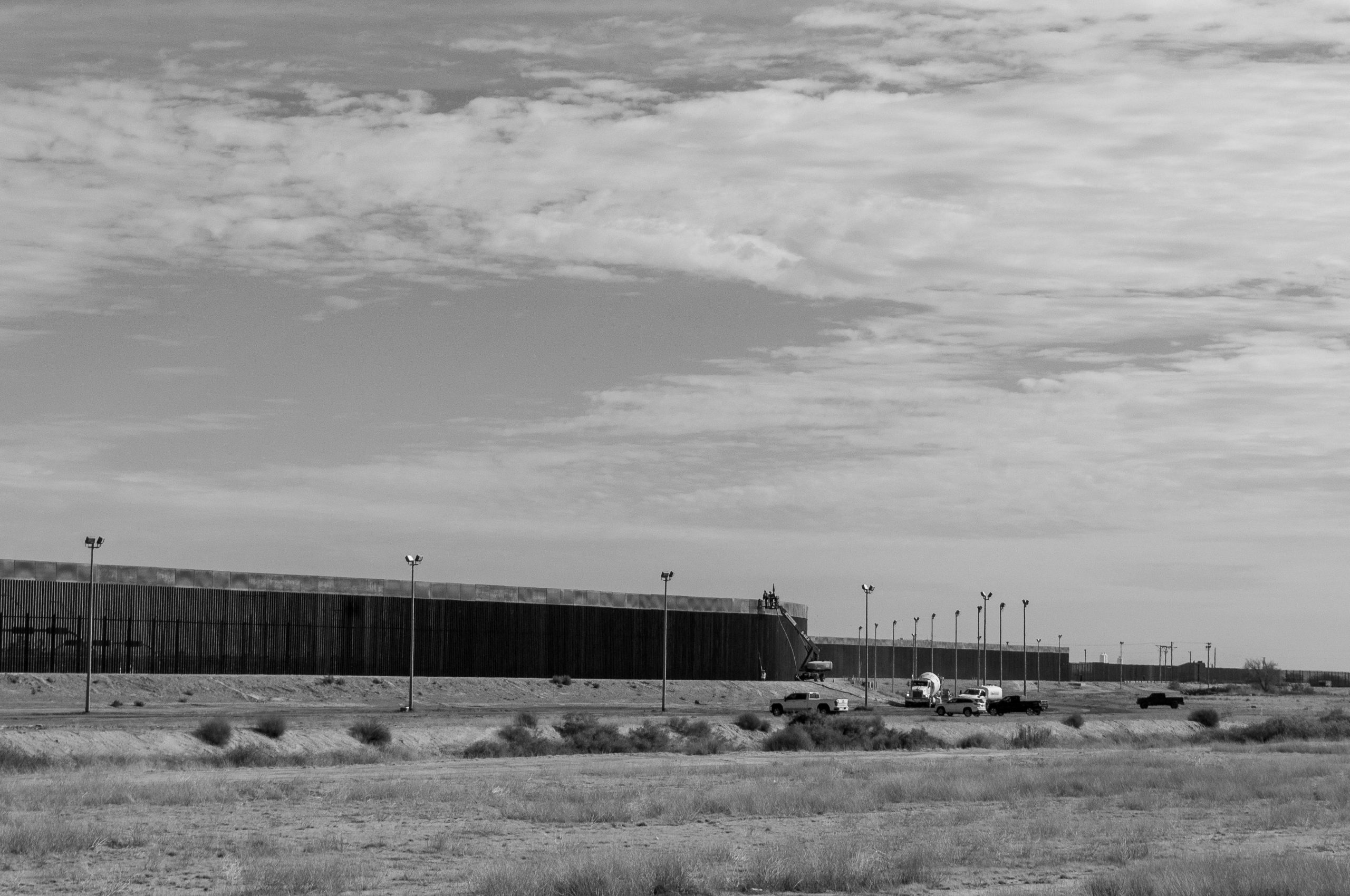
A grayscale landscape with a tall border fence surrounded by floodlights in the distance. Image by David Peinado from Pexels is licensed under Pexels license.
Immigration law is commonly assumed to be enforced by federal agencies such as the U.S. Immigration and Customs Enforcement (ICE). However, in recent years state, county, and municipal police and courts have become integral to the process of identifying, holding, and punishing immigrants. From the moment a person is booked, local police become aware of their citizenship status and this information can be immediately forwarded to federal authorities.
To gain insight into these local-federal law enforcement relationships, Michael T. Light and colleagues looked at data on felony convictions from every local jurisdiction in Texas and California. These states have the largest and fastest-growing immigrant populations in the US but differ greatly in how they treat immigrants in the justice system. Texas has given immigration authority to the local police and has increased cooperation with ICE. California, in contrast, has become a self-proclaimed “sanctuary” for immigrants by distancing themselves from ICE and preventing local authorities from holding people for immigration violations alone. Looking at data from both states allowed the researchers to compare these differing approaches.
In both states, the researchers found that immigrants were convicted and incarcerated at a much higher rate than comparable US citizens arrested for the same crimes with similar criminal histories. In Texas, however, they found that immigrants were almost 10% more likely than citizens to be incarcerated, whereas the immigrant-citizen gap was only 2% in California. This is largely due to Texas’ strict policies that encourage local law enforcement to work with federal law enforcementIn some ways, this “punishment gap” between citizens and immigrants parallels the disparities between white and non-white defendants. The authors therefore suggest that future discussions of disproportionate criminalization may center around citizen status as well as race.
This research shows what can happen when local police become the gatekeepers of both the criminal justice system and the immigration system. Based on the differing outcomes in Texas and California, it appears that deepening connections between local and federal criminal justice systems may result in harsher punishment for immigrants.

Comments